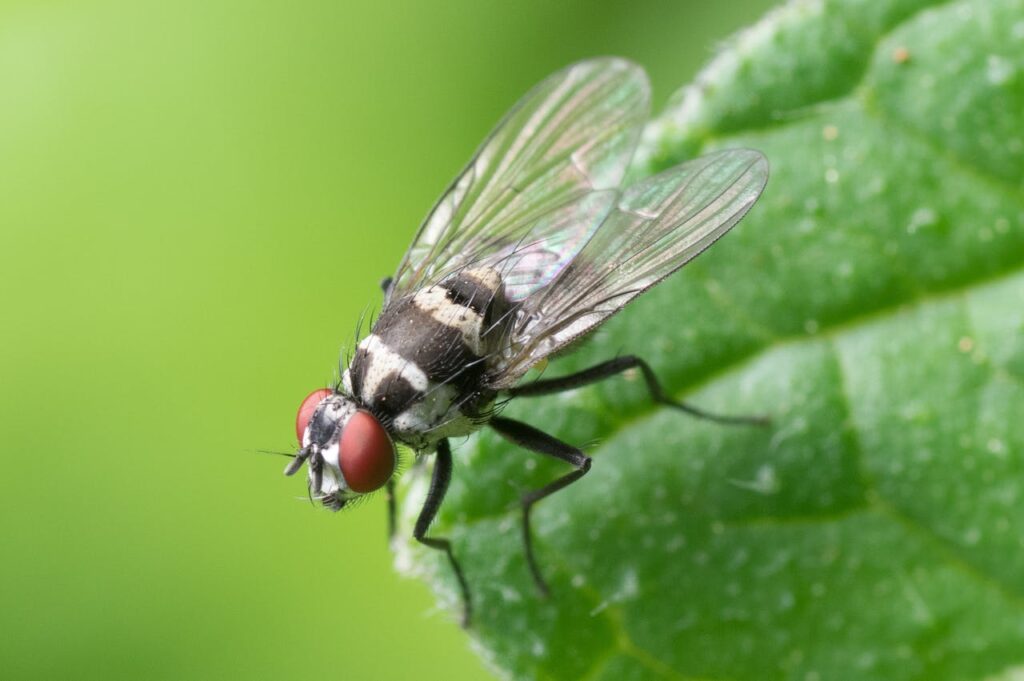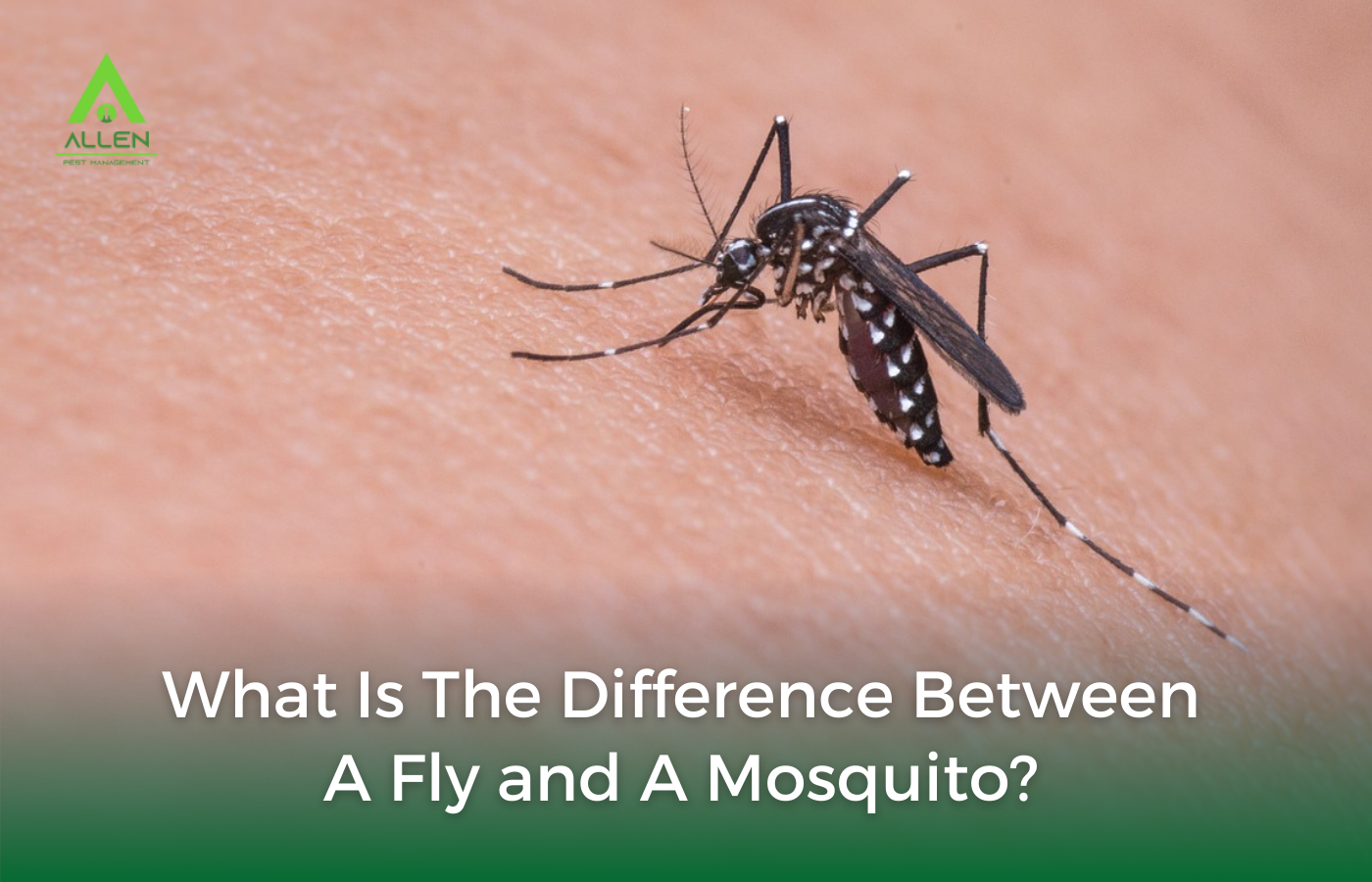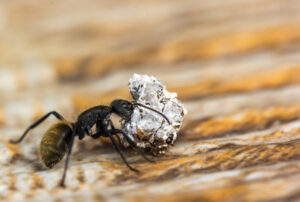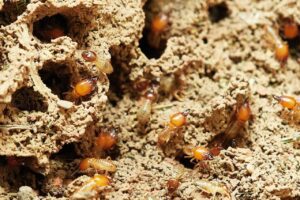Flies and mosquitoes are common insects that can be found almost everywhere. Though they might seem similar at first glance, there are clear differences between them.
Pest control is a chess game – understanding these differences helps you stay one move ahead. In the high-stakes game of backyard bug battles, knowing your enemy is half the battle.
So, let’s drill down on the discernible characteristics, questionable conduct, and (most importantly) the proven strategies for ousting flies and mosquitoes from your home.

Appearance
Size
Flies and mosquitoes vary in size. Generally, mosquitoes are smaller, with a slender body and long legs. Flies tend to be larger with a more robust body.
Wings
Both flies and mosquitoes have wings, but their wings look different. Flies have two wings, while mosquitoes have a pair of scales on their wings that give a distinct look.
Antennae
Mosquitoes have longer antennae compared to flies. These long antennae are sensitive and aid in finding hosts.
Behavior
Feeding Habits
Mosquitoes are known for feeding on blood from humans and animals. This is how they get the nutrients needed for laying eggs. Flies, on the other hand, feed on a variety of things such as decaying matter, food scraps, and sometimes even human and animal waste.
Breeding
Mosquitoes lay their eggs in stagnant water. This is why you often find them near ponds, puddles, and other water-filled containers. Flies prefer to lay their eggs in places where there is decaying organic material, such as garbage bins and compost heaps.
Health Risks
Mosquito-Borne Diseases
Mosquitoes are notorious for spreading diseases like malaria, dengue fever, and Zika virus. These diseases can have serious health effects and are a major concern in many parts of the world.
Fly-Borne Diseases
Flies are also carriers of diseases. They can spread infections like salmonella, E. coli, and cholera. These diseases are usually spread through contact with contaminated surfaces or food.
Control Methods
Fly Control
To manage flies, it is important to keep areas clean and free of food scraps. Proper disposal of garbage and regular cleaning can reduce fly populations. Using fly traps and screens can also help.
Mosquito Control
Mosquito control involves reducing standing water where mosquitoes breed. This can be done by emptying containers that collect water and maintaining clean gutters. Insect repellents and mosquito nets are effective in protecting against mosquito bites.
Effective Strategies for Controlling Flies and Mosquitoes: Protecting Your Health and Environment
Understanding the differences between flies and mosquitoes is crucial in handling them effectively. While both are annoying pests, their habits and the risks they pose are different. Knowing how to identify and control each type can help in maintaining a safer and more comfortable environment. By focusing on proper fly control and mosquito control methods, you can reduce their presence and prevent the health issues they bring.
Ready to rid your space of pesky flies and mosquitoes? Allen Pest Management has got you covered. Our expert knowledge and effective strategies guarantee a pest-free environment for you and your loved ones. Contact us to discover how we can protect your health and well-being. Say goodbye to unwanted guests—partner with us.







